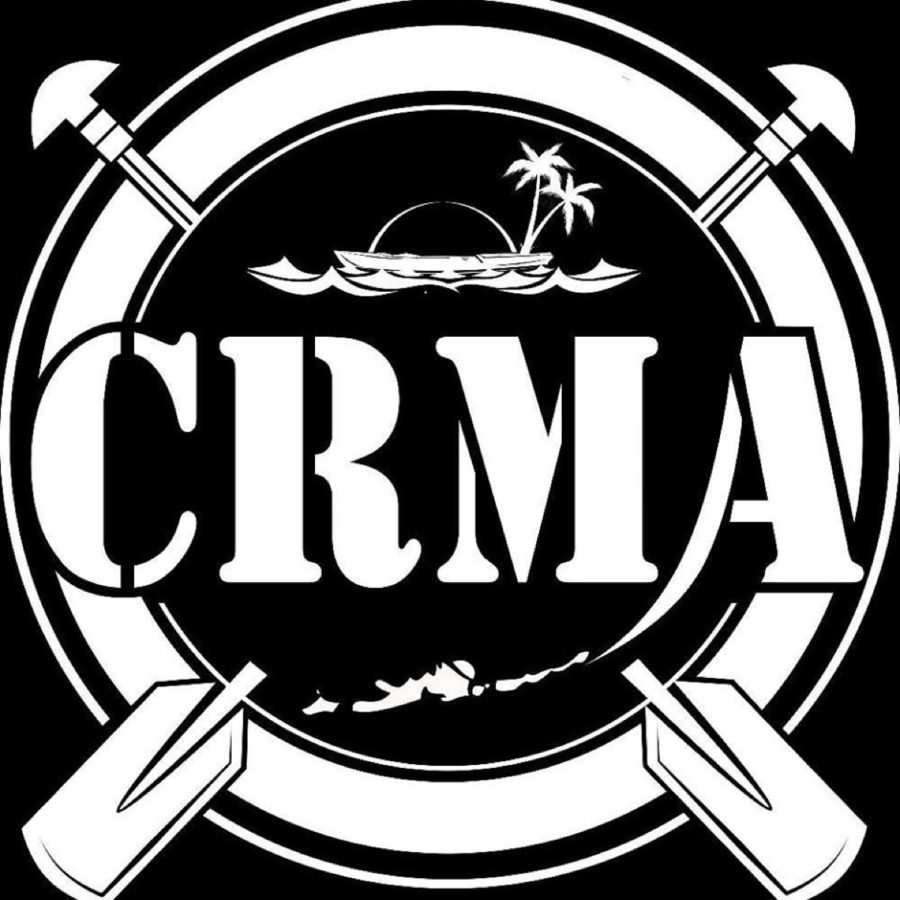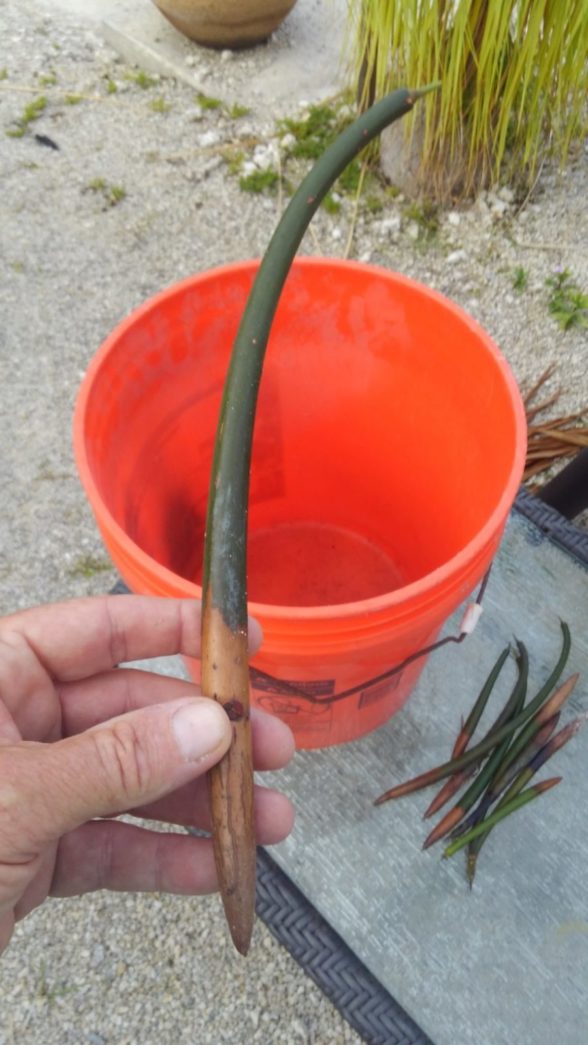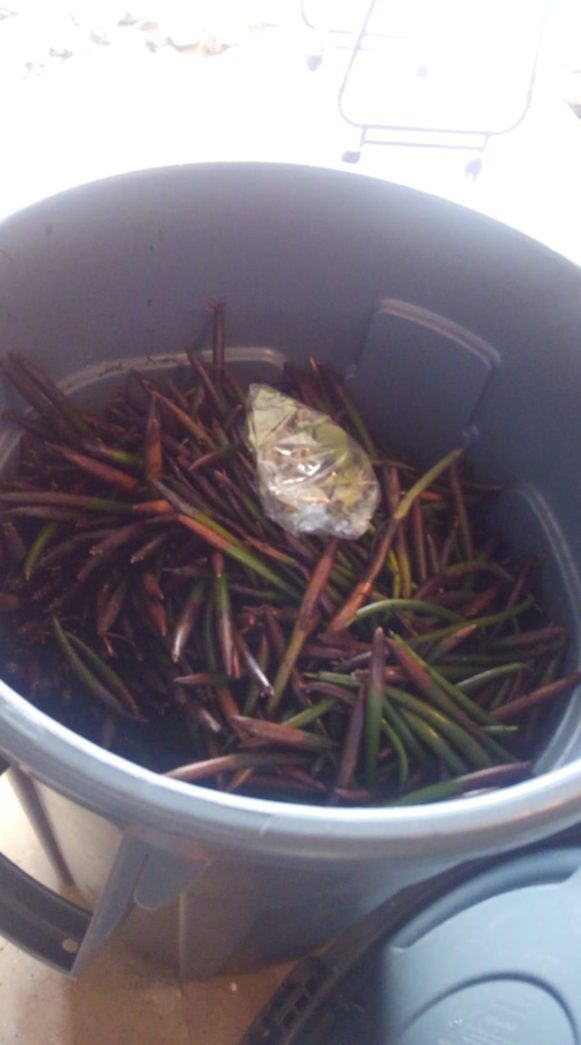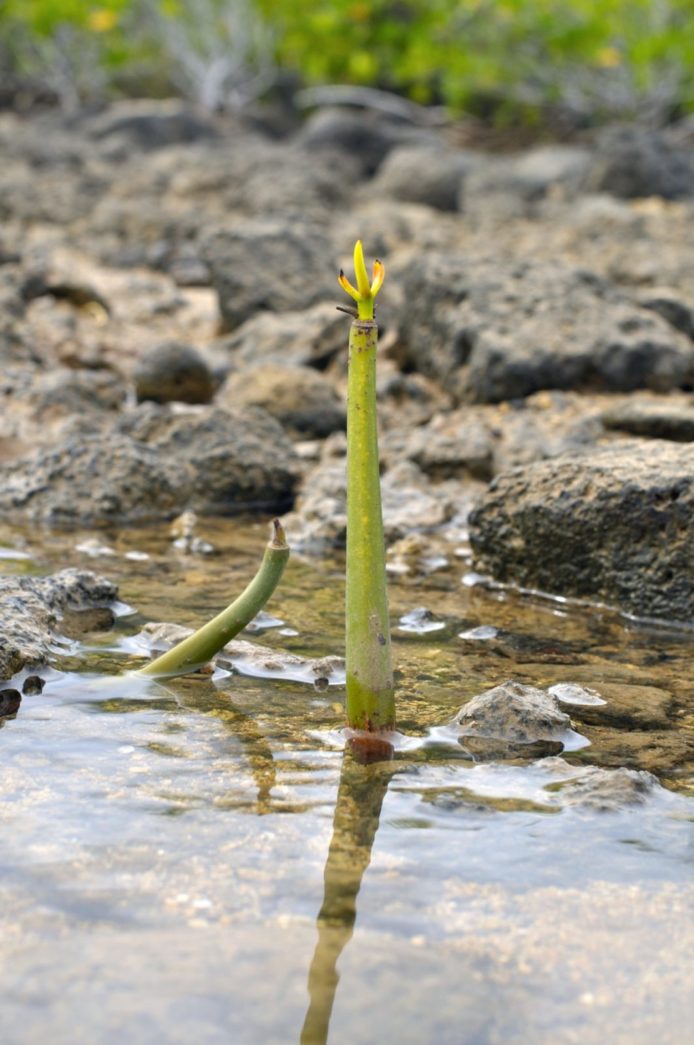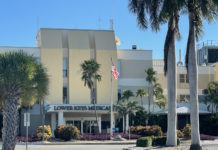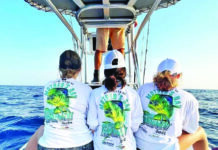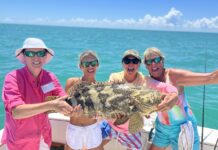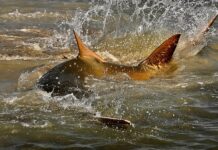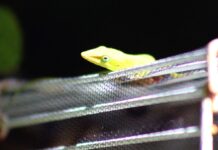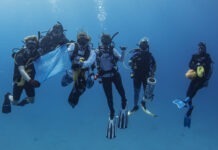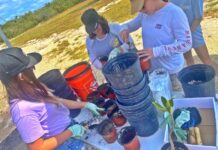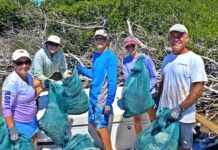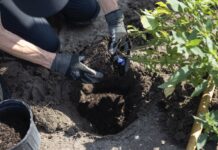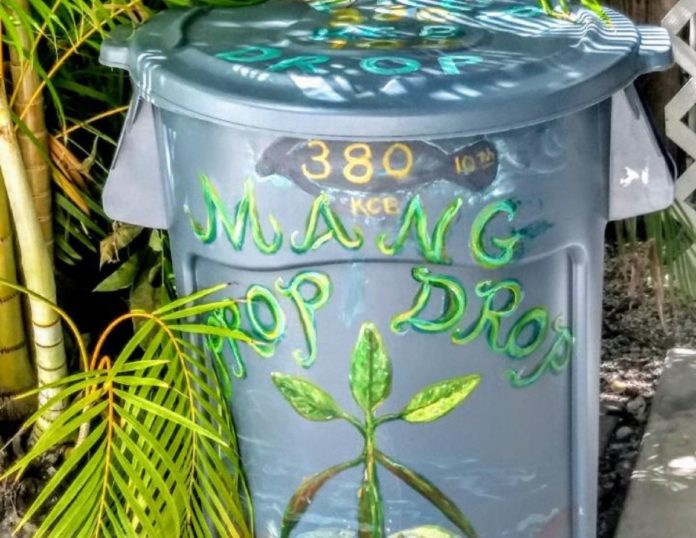
The Battle of the Propagules is on, and the Conch Republic Marine Army (CRMA) wants your help.
“Mangroves are huge!” said CRMA president and founder Brian Vest. “They’re the #1 carbon sequesterer on the planet and also provide an ungodly amount of habitat for everything in the Florida Keys.”
Vest explained how the three coastal habitats of the Florida Keys ‒ the mangroves, the grassy flats and the coral reefs ‒ work together to support the biodiversity of the Keys.
“If the mangroves are the nursery, grass flats are elementary school and the reefs are college,” Vest said. “Baby fish, crabs and lobster live in mangroves until they move out to the grass flats to grow bigger and then the reefs to graduate. If you take away any one of those ecosystems, we’re in trouble.”
The CRMA was founded just after Hurricane Irma as a reaction to the furniture, paint cans, motorcycles and shopping carts floating in the mangroves and the water, Vest told the Weekly. He’s since amassed close to 3,500 volunteers who have worked to pull 152 tons of trash out of the water.
As they’ve worked over the past three years, Vest noticed miles and miles of dead mangroves.
“The hurricane got them. Piled trash and debris all over them,” Vest said.
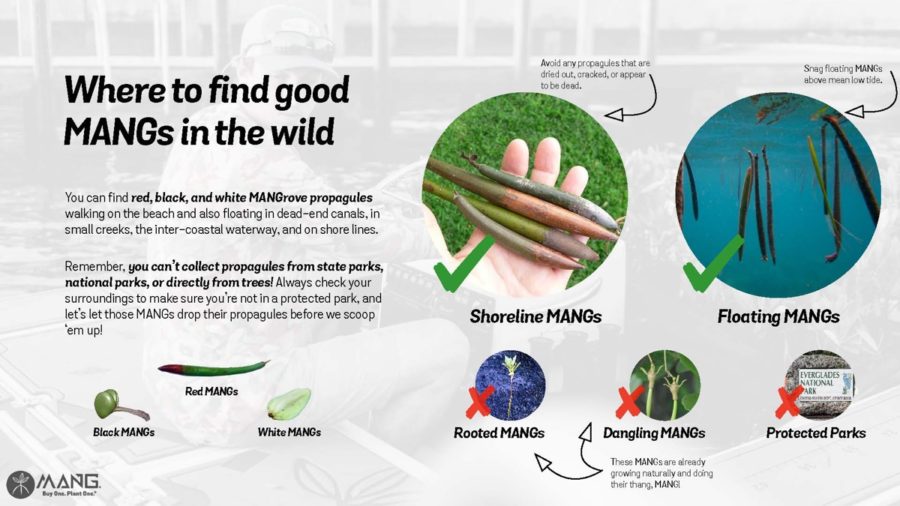
Vest always had a vision of replanting mangroves as the CRMA cleaned up the back islands, he said. He got in contact with West Palm Beach-based mangrove restoration company Mang Gear, and the great Battle of the Propagules was born.
“Our volunteers collect propagules (baby mangroves) while we’re out cleaning up, and Mang will take those to their nursery in West Palm and grow them,” Vest said. “Then, when we need trees, they’ll bring them to us. No charge to them and no charge to us.”
The effort has been open for three weeks, and the CMRA has been “collecting props hand over fist,” totaling near 23,000 propagules in that short time.
“No amount is too small. One family doing a little bucket on a Saturday, times 30 families, and it adds up quick,” Vest said. “A little bit changes the world.”
The goal is to collect at least 50,000 propagules by the time the mangrove season ends. The Mang nursery can handle over 1 million, and the company has set that as its restoration goal.
To help, you can collect red, green or black propagules in a bucket, and the CRMA will arrange pickup. Things to note:
- Collect propagules in the water or along the shoreline on foot or by kayak or paddleboard. Avoid refuge land.
- Store them dry in buckets out of the sun for up to two weeks. Don’t let them dry out.
- Drop off points are in Marathon (380 10th St.) and Big Pine (30335 Warbler Ln.). Anyone anywhere else in the Keys, including Key Largo and Key West, can call Vest at 804-815-0655, email Brian@conchrepublicmarinearmy.com or Facebook message CRMA for a pickup.
“The mangroves are dead and won’t come back unless you plant a tree,” Vest said. “Sure, if we leave it alone, it’ll come back in 100 to 300 years, but I don’t have that time. Neither do my grandkids, and they aren’t even born yet.”
